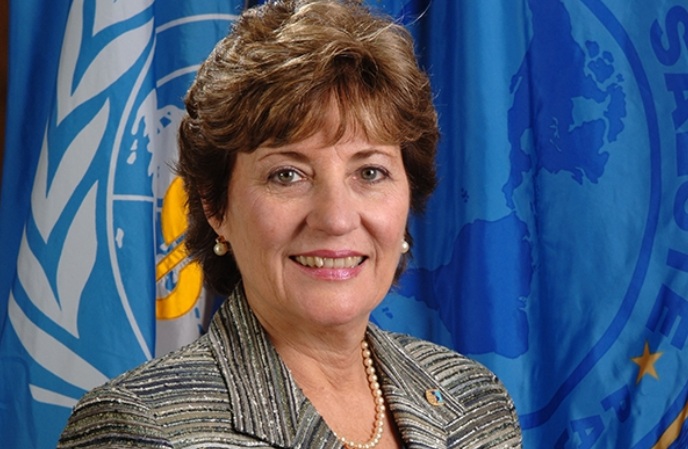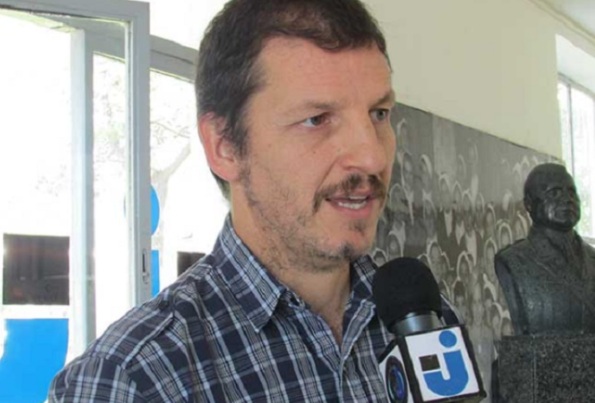Graciela Olga Scharovsky is a researcher and professor at the Faculty of Medical Sciences at the National University of Rosario, located in the province of Santa Fe, Argentina. Scharovsky is a specialist in oncology, and the focus of her scientific research is on non-endemic diseases.
Her studies are closely related to health sciences, particularly breast cancer, and the development of new treatments and therapeutic tools.
Scharovsky and her connection to science
Scharovsky is involved with several academic institutions, both nationally and internationally. In Argentina, she collaborates with the Faculty of Medicine at the University of Buenos Aires and the Institute of Biology and Experimental Medicine.
The Institute of Biology and Experimental Medicine (IBYME) is affiliated with both the University of Buenos Aires and the National Scientific and Technical Research Council (CONICET), Argentina’s main scientific and technological research body.
The institute is a research center that spans multiple fields, including cellular biochemistry and oncology, and it is dedicated to generating scientific knowledge related to biological sciences and experimental medicine.
Internationally, Scharovsky is part of the Faculty of Sciences at the Autonomous University of Madrid, located in Spain.
She also serves as director of the Institute of Experimental Genetics at the Faculty of Medical Sciences of the National University of Rosario.
It is within this institute that Scharovsky seeks to develop therapeutic strategies for the treatment of breast cancer, aiming to provide a better quality of life for patients.
New therapeutic strategies
Together with her colleagues at the Institute of Experimental Genetics, Scharovsky researches therapeutic strategies to treat one of the most aggressive types of breast cancer, known as the triple-negative subtype.
To develop these strategies, they focus on metronomic chemotherapy, a treatment that involves continuous low doses of cancer drugs.
They are also exploring drug repositioning—using existing medications in combination for different therapeutic purposes.
The goal of these investigations is to improve patient quality of life and reduce tumor growth. Additionally, they aim to integrate these new therapies into official treatment options.
Their studies also aim to achieve less toxic chemotherapy treatments and lower overall costs.
Since triple-negative breast cancer is a type of tumor with limited therapeutic alternatives, the research led by Scharovsky represents significant progress in the field.
Results from their studies have shown success in reducing tumor growth and improving patient survival prognosis.
Breast cancer
Beyond her research at the Institute of Experimental Genetics, Scharovsky publishes scientific work specifically focused on breast cancer.
Her studies cover topics such as the use of sodium dichloroacetate in cancer treatment and the application of metronomic therapy for breast cancer.
Breast cancer is a disease that affects over a million people annually and causes nearly a million deaths each year.
As it affects women globally, numerous institutions around the world dedicate their research to this disease.
While key risk factors include obesity and a family history of breast cancer, women of any age from puberty onwards can be affected.
Given the high mortality rates associated with breast cancer, various campaigns, programs, and scientific events are organized to make information more accessible to the public.
In Argentina, the National Breast Cancer Control Program works to ensure proper access to healthcare and promote preventive care.
Through her research, Scharovsky contributes to the scientific understanding of oncology, clinical trials, and cancer therapies.
By addressing topics related to the biology and immunology of cancer and various tumor types, the Argentine researcher strives to develop new therapeutic strategies for breast cancer.
Nationally, she stands out as a leading professional in the health field, especially in oncology and breast cancer research.
Through the development of new therapeutic tools, Scharovsky seeks to lower breast cancer mortality rates and improve quality of life.




